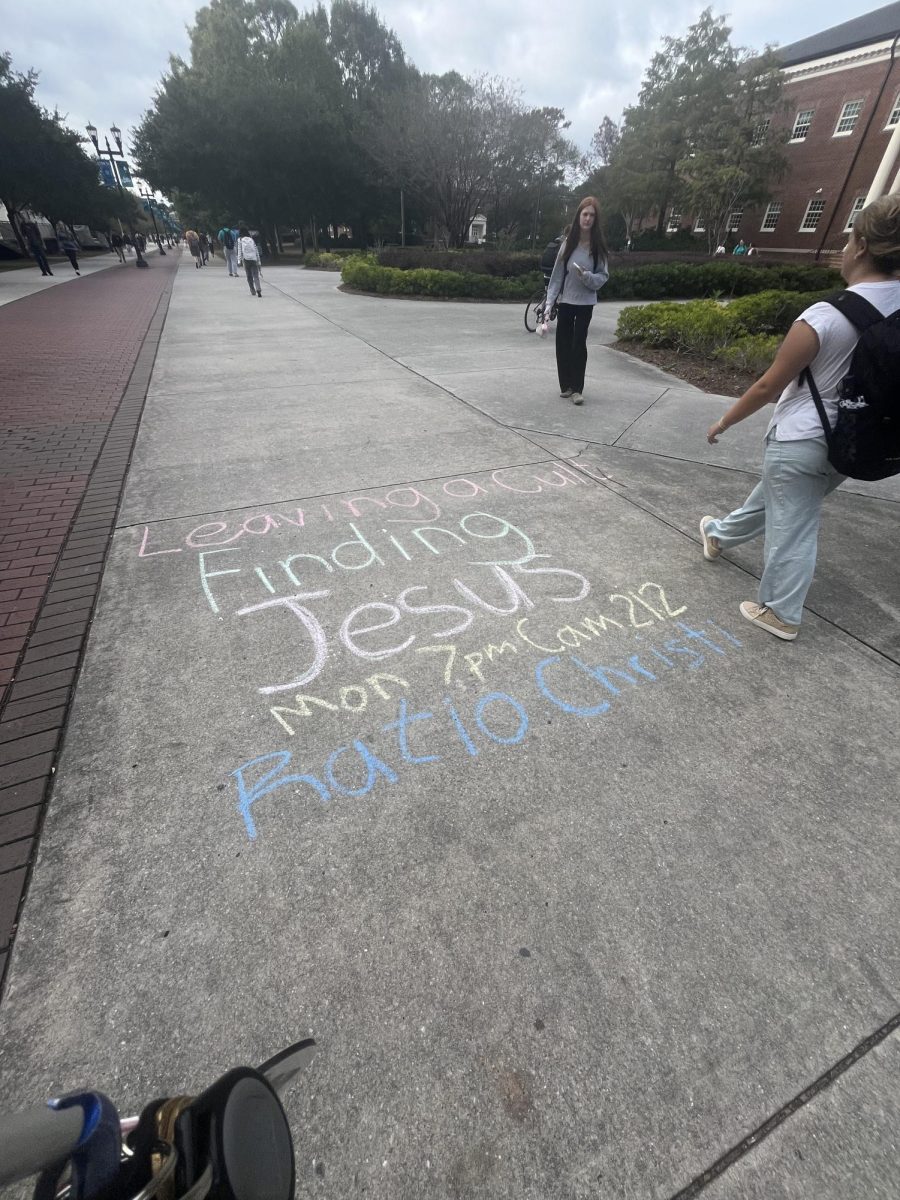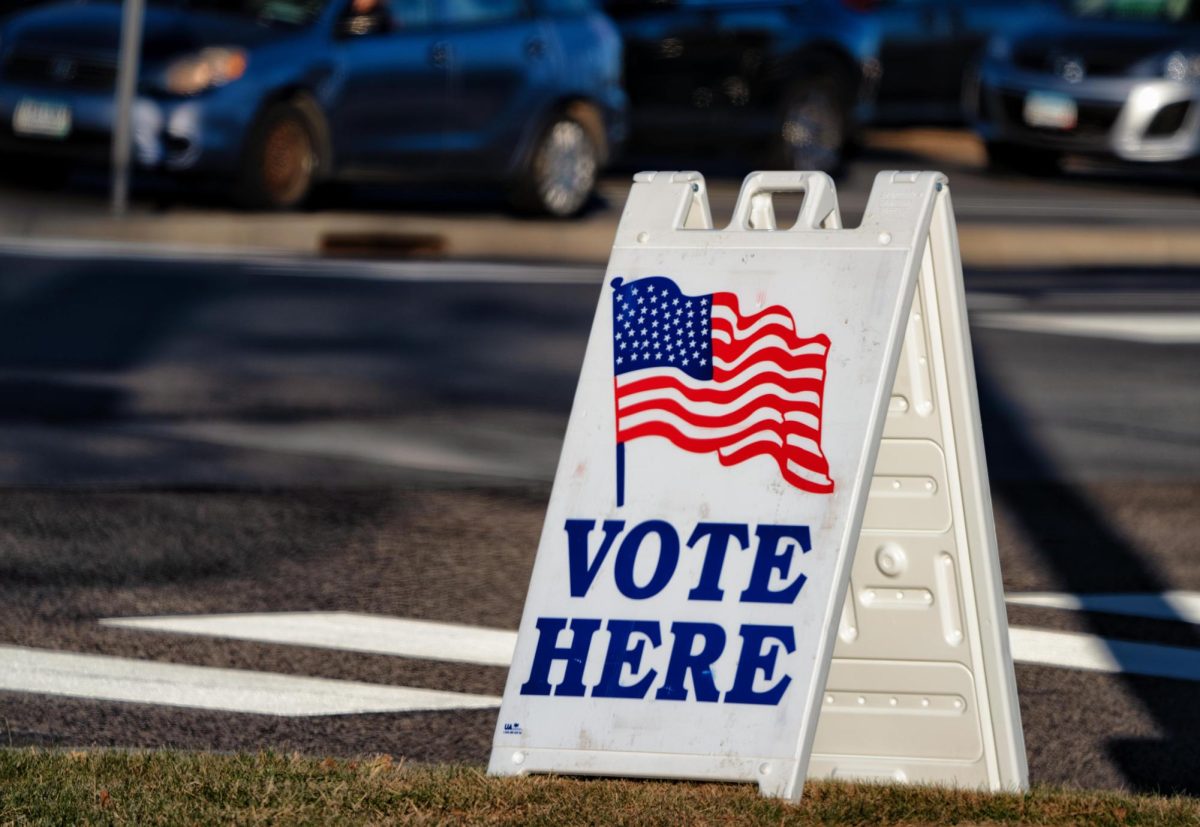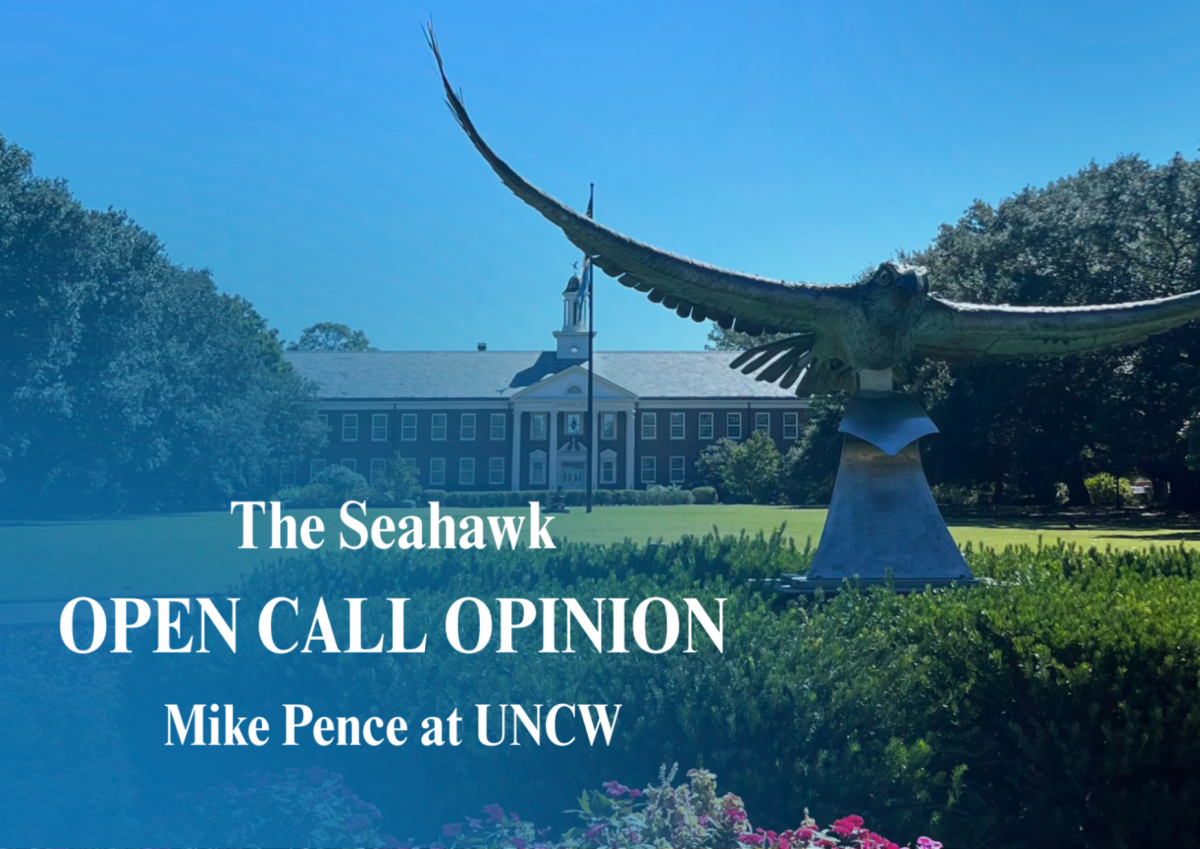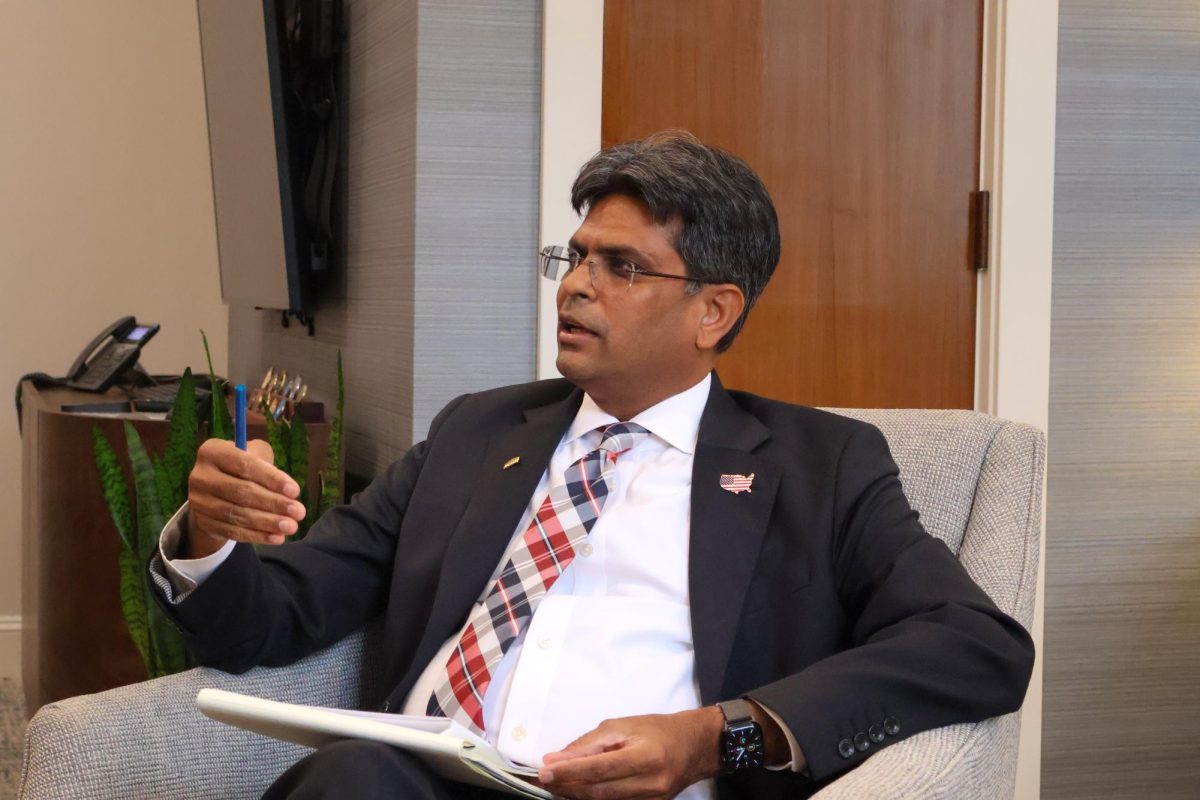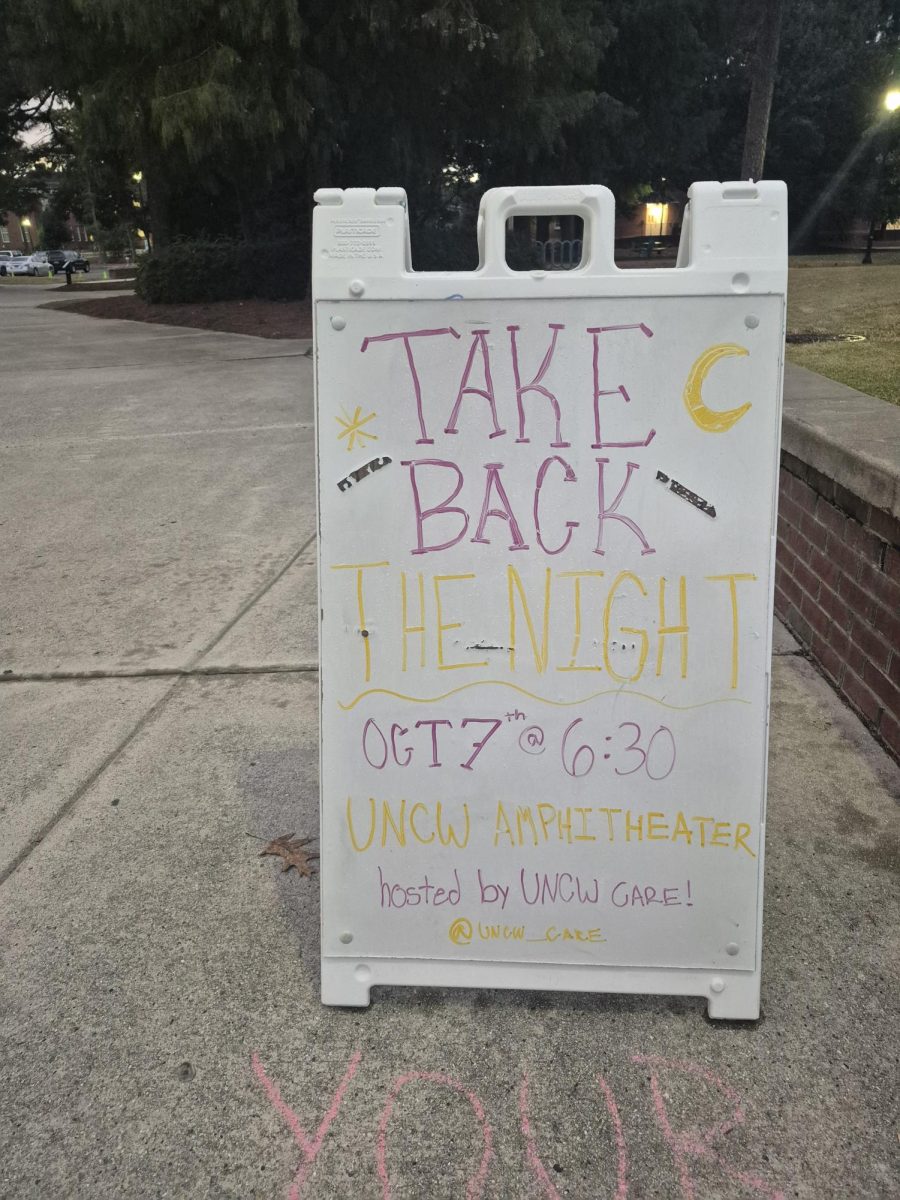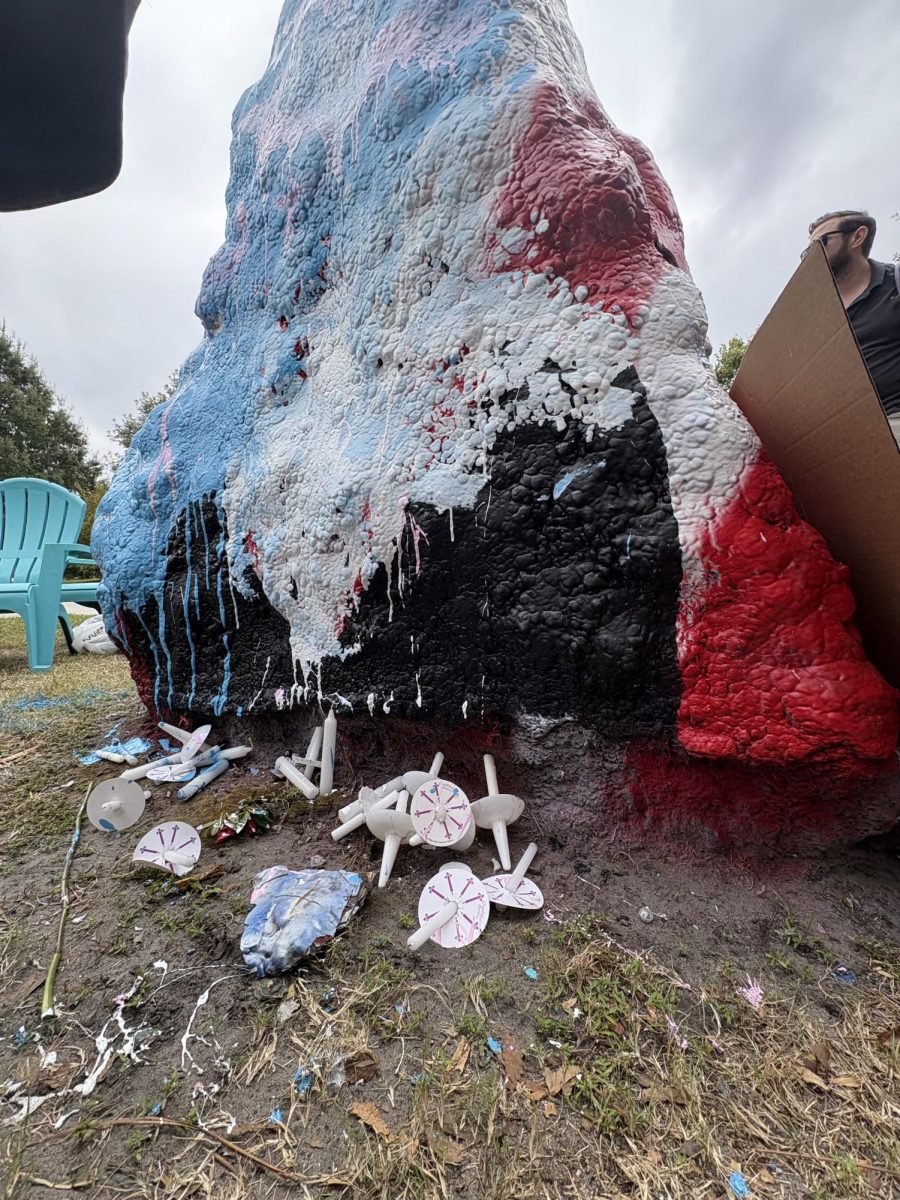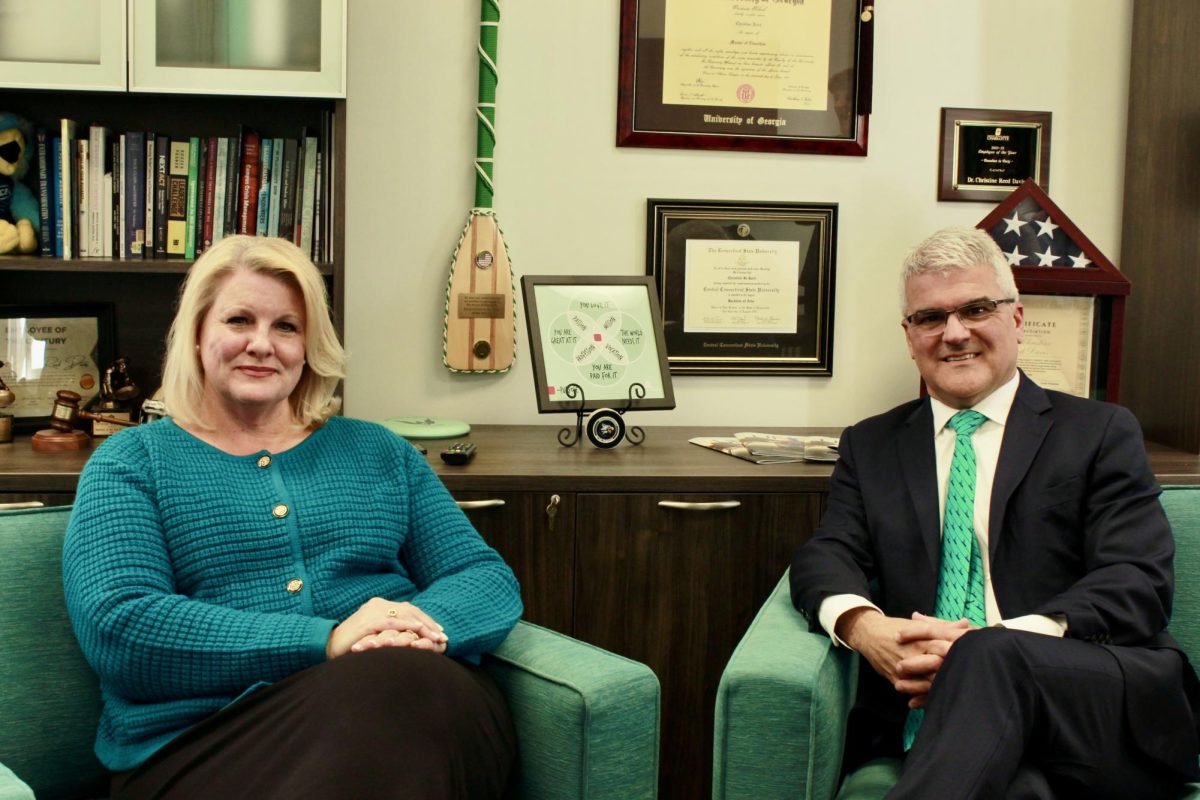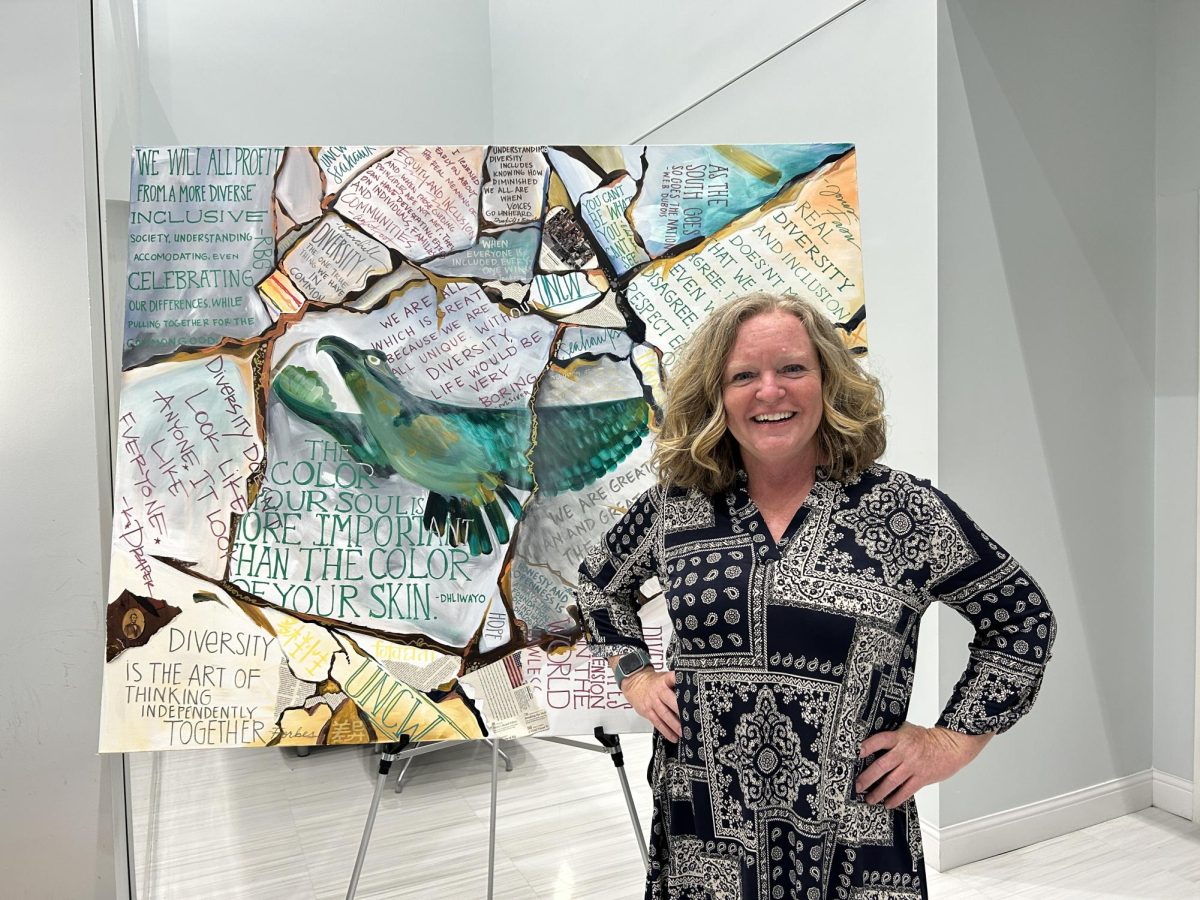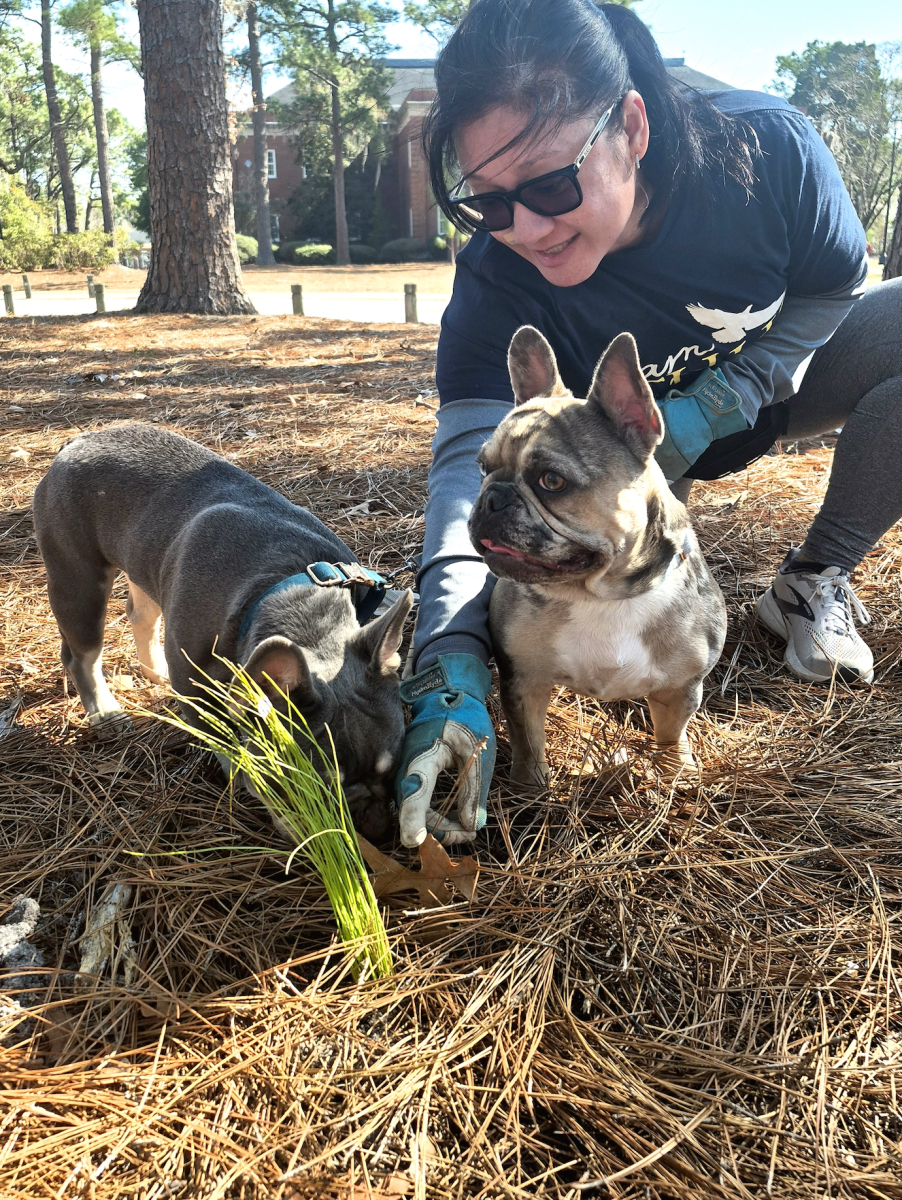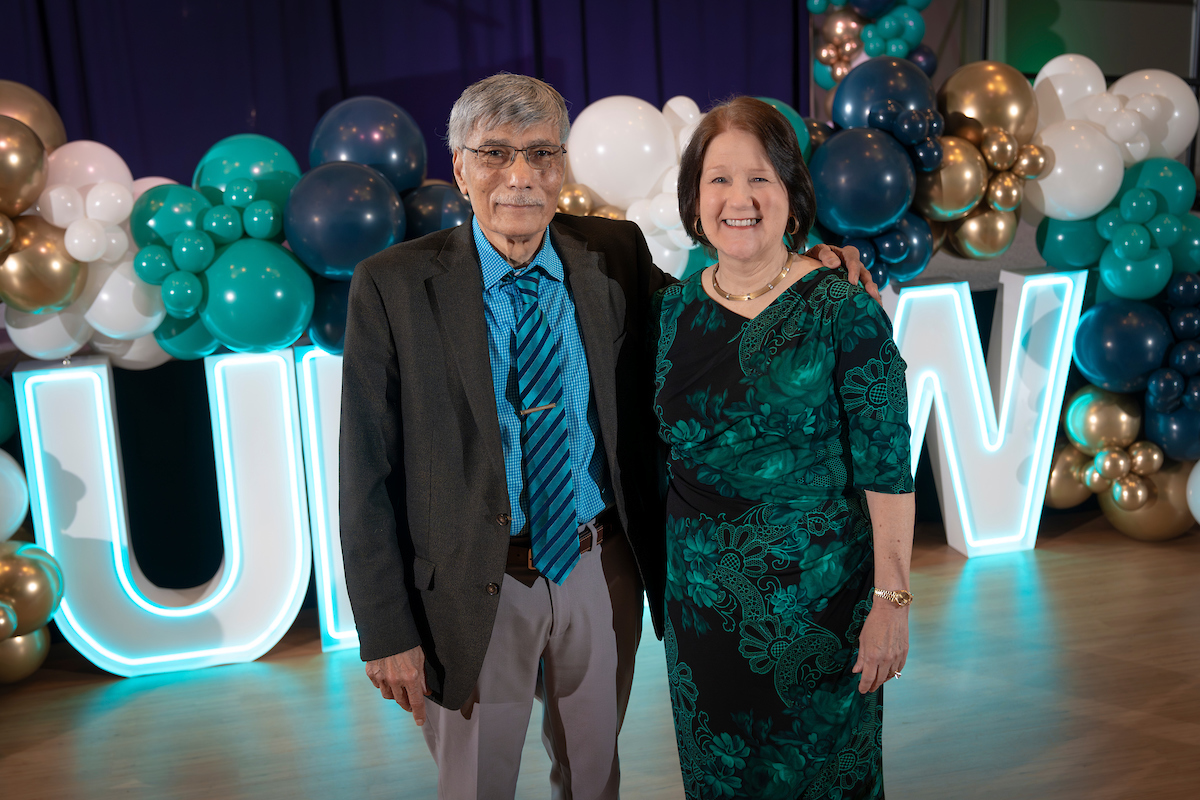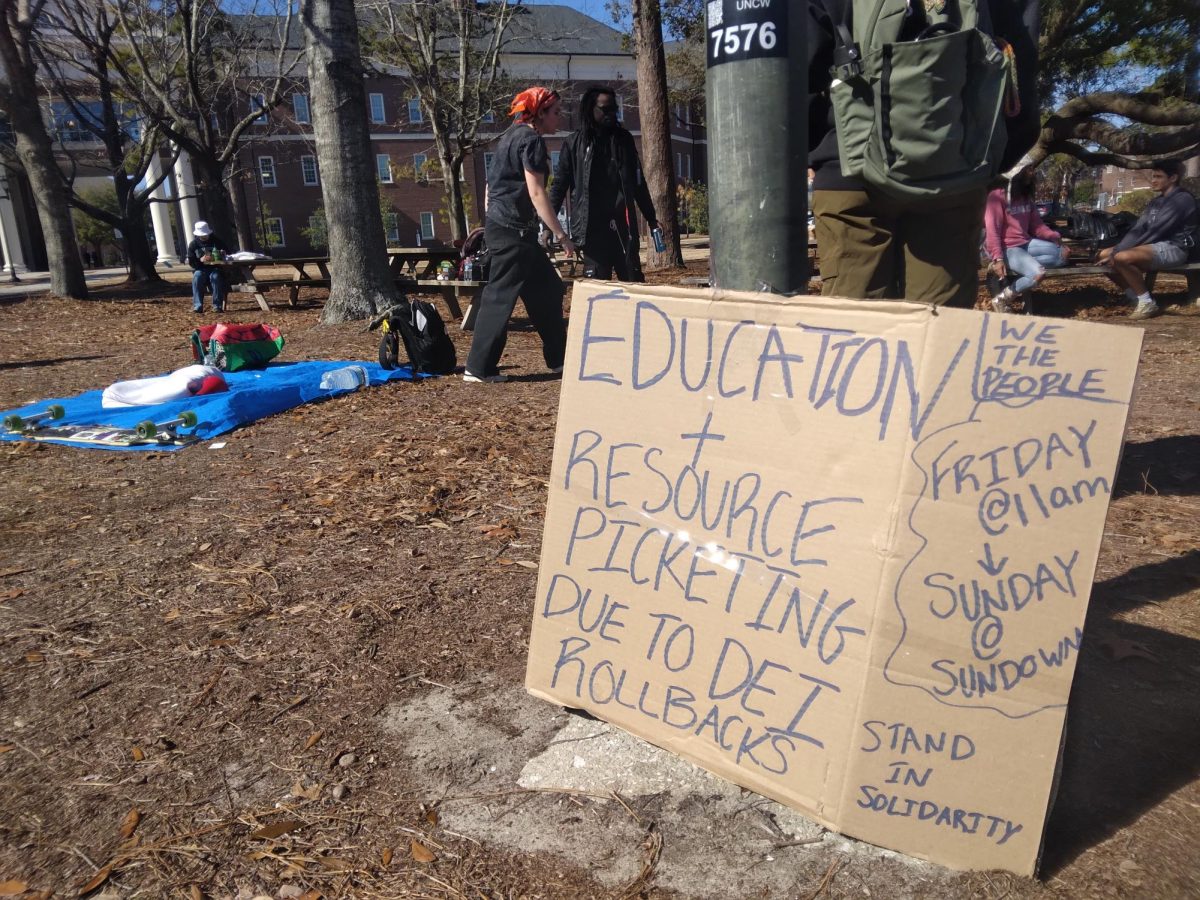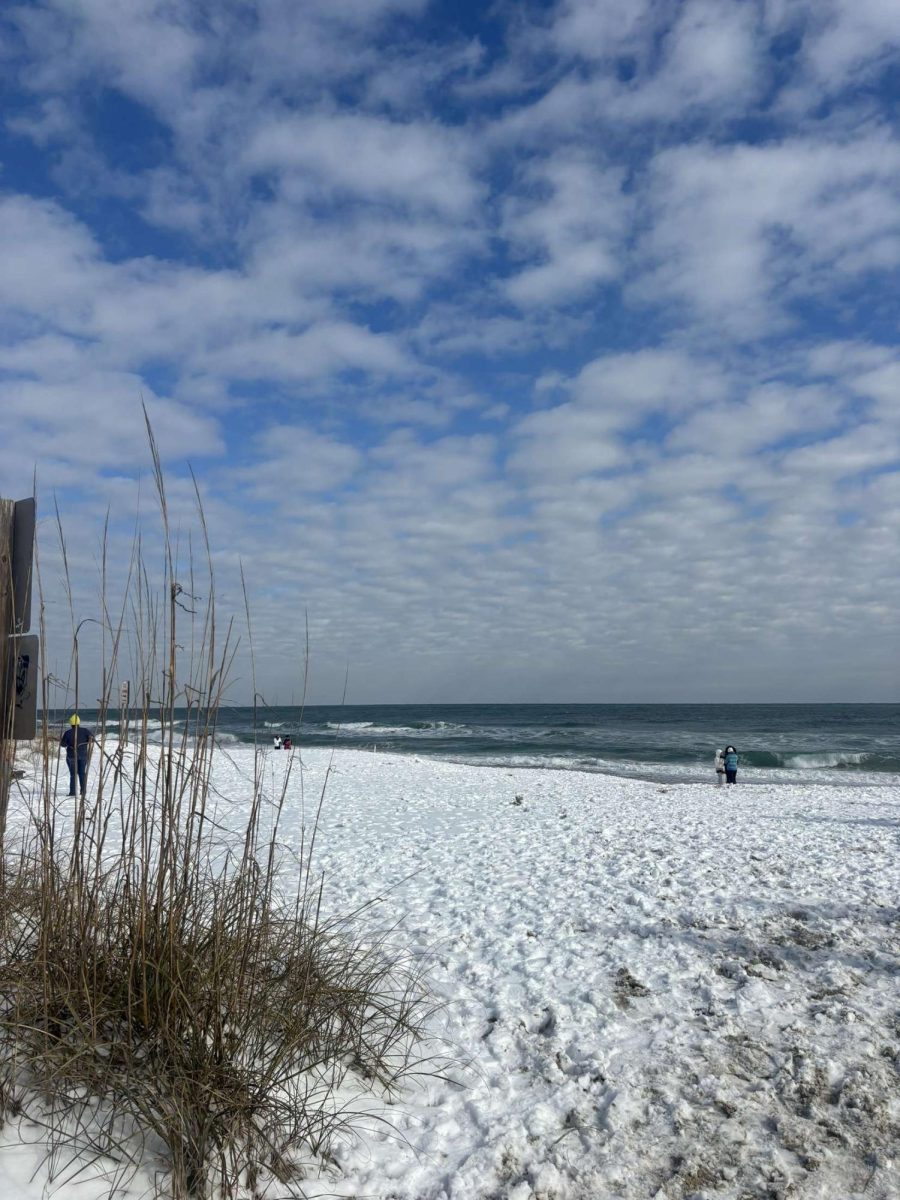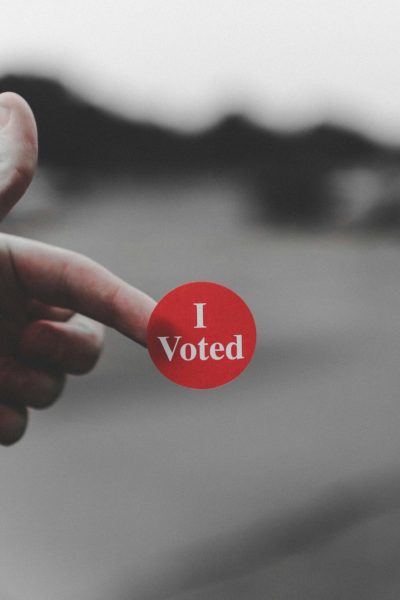
With an estimated eight million new eligible voters, Gen Z has the power to tip the scales.
In the same five minutes it takes to register to vote, you could scroll through TikTok, grab a coffee, send a quick text or wait for the elevator. You could also microwave your lunch, add something to your Amazon cart or skim through a playlist. But those five minutes could also shape the next four years of your life.
Voter participation is the cornerstone of democracy, yet turnout among young people remains consistently low, especially in midterm elections. Many believe their votes won’t make a difference or feel disconnected from the political process.
A study on 2022 midterm elections by Tufts University’s Institute for Democracy & Higher Education, found that voter turnout among college students, while improving in recent years, still lags behind that of older age groups. Many factors contribute to this gap. In particular, college students have some extra hurdles to jump through when it comes to voting.
Dr. Aaron King, a political science professor at UNCW, emphasizes that while voting isn’t entirely effortless, the barriers are not insurmountable either. “I’m not here to say voting is costless. It takes some effort,” he admits.
For many college students, the challenges come from practical issues. Navigating voter registration can be confusing, especially for those voting for the first time. Some students may be registered back home and unsure of how or where to update their registration. The list goes on. This, combined with juggling school work, classes and other responsibilities can make the process seem more daunting than it is.
No matter the challenges, students have more resources than ever to navigate the voting process. From easily accessible registration tables on campus to voter engagement initiatives, such as Rock the Vote, the support is there if students are willing to take the first step.
UNCW has partnered with organizations such as You Can Vote to make it easier for students to register and participate in elections. “They’re a non-partisan organization, and their efforts are really focused on getting young people registered to vote, and actually vote,” said Dr. Jaime Russell, Director of Student Community Engagement at UNCW. This direct collaboration is vital in creating an accessible pathway for student voters to get engaged.
Over the past year, the university has ramped up its efforts through these partnerships, resulting in impressive numbers. “Last fall leading up to that primary, [You Can Vote] were able to register 826 students. That was through classroom presentations and tabling events,” said Russell. “And then in the spring, maybe not as many, but it was closer to about 200 to 250 students [registered]. But collectively that’s over a thousand students,” she added. “They are projecting that they’ll surpass that number this fall.”
This continued focus on voter education and outreach shows the institution’s commitment to political participation among its student body.
UNCW’s participation in the National Study of Learning, Voting and Engagement (NSLVE) has helped measure voter registration, participation rates and impact on campus. According to the report, the number of students who were registered to vote, and voted in the 2020 election was 80%. That means overall, UNCW’s voting rate was 73%, while all institutions averaged 66%. These figures reflect a positive trend of political engagement at UNCW, demonstrating that the campus’s efforts to make voting easier and more accessible are paying off.
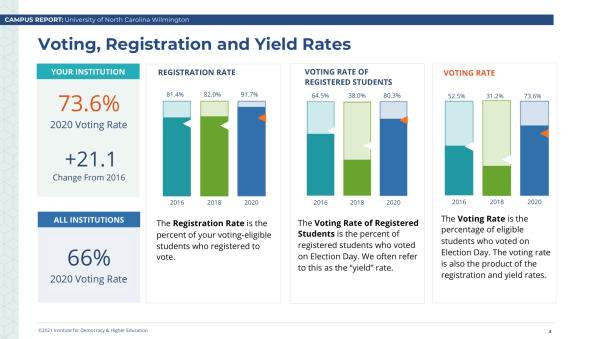
UNCW Votes is another resource for students that works to simplify and clarify the voting process and combat logistical barriers to voting. According to Russell, the initiative was born from the understanding that there was a lack of a coordinated effort on campus to get students engaged politically.
“So prior to 2020, is when we were like ‘let’s just see if we can get some people together,’ and then we created the website,” said Russell.
To help students navigate the voting process, UNCW Votes is actively addressing common logistical barriers. Russell explains that they are offering “drop-in hours where [students] can get help” with absentee ballots. This includes providing photocopies of IDs, as required by voter ID laws, and securing witnesses. Additionally, the program provides stamps for mailing ballots to ensure that “the lack of postage, photocopies or witnesses are not a barrier to anybody.” On top of that, transportation is available to early voting locations on specific dates, allowing students to “just show up.”
From now until election day, students needing assistance with absentee ballots can pop into the CAIC office (2029 Fisher Student Center) on Mondays from 10 a.m. – 1 p.m. and Wednesdays from 10:30 a.m. – 12:30 p.m. Registration is also posted on Wavelink.
Early Voting Shuttles to the polls will occur on Oct. 17, 4 p.m. – 6 p.m. and Oct. 25, 1 p.m. – 3 p.m. Shuttles will pick-up and drop-off every 30 minutes in front of the UNCW bookstore.
These resources aim to simplify what might initially feel overwhelming and help students understand that, with a little effort, participating in elections is entirely within their reach.
However, these initiatives may also fail to resonate with students who doubt the impact of their individual votes.
In battleground states like N.C., where the margin of victory can be razor-thin, every vote counts. FiveThirtyEight’s models show how N.C.’s voter result could tip the election depending on turnout and support for each candidate. With just 16 electoral votes, shifting demographics make N.C.’s election results increasingly unpredictable. Voter turnout is crucial to the outcome.
“From a pure probabilistic standpoint, there’s going to be 140 million people voting. Statistically, what are the odds that the race is tied and your vote tips the scale? Probably it’s small,” said King. “People have to look at it not from a statistical standpoint, but more a philosophical or symbolic point of voting.”
“Sometimes people are too hung up on a process they may not like, more so than seeing this as ‘this is my chance to do something,’’’ King concluded.
Due to the polarization of politics, many opt to avoid the topic altogether, believing it’s easier to “just stay out of it.” But, as Dr. King says, “If you disengage in the process, you are handing over the process to people that you probably can’t stand.”
When people disengage from the political process, they miss their opportunity to influence decisions that directly impact their lives, potentially leaving their interests and concerns unaddressed in key policy discussions. “I think people perceive that they have a little bit less at stake in the system,” said King. “But I think that younger people have plenty of things to do. College students talk a lot about student loans, environmental issues and social issues.”
Politicians are elected to represent the electorate, and their responsiveness is directly tied to voter engagement. “Politicians are responsive to voters because voters are who put them in power,” said King. “But if you want [politicians] to be responsive to you, you have to engage in some way.”
As November quickly approaches, it’s crucial for voters to take proactive steps to ensure their voices are heard. Plan ahead. Know your polling place, ensure you have all necessary documents and ID’s ready and decide whether you’ll vote in person or by absentee ballot. The deadline to request an absentee ballot is Oct. 29, 2024 at 5 p.m. Make sure you submit your ballot well in advance of Election Day on Nov. 5, 2024. Early voting in N.C. begins Oct. 17, 2024 and runs until Nov. 2, 2024.
Additionally, voters should educate themselves on the candidates and issues that will be on the ballot. Voters can preview a sample ballot before Election Day, allowing them to familiarize themselves with the positions and candidates listed.
For UNCW Students, UNCW Votes offers a user-friendly, one-stop resource to help with everything from registering to vote to finding your polling location and understanding absentee voting.
Finally, voting is often more impactful when approached as a collective effort. Encourage friends, classmates and family members to make their own voting plans. “I think that can be a not so positive influence… If you hear that message from peers, ‘it’s just one vote, it doesn’t matter.’ It does. It really does matter,” said Russell. “Think about looking ahead and the next generation, who do you want to see making important decisions that are going to impact your life in the years to come?”
Next time someone approaches you on campus about voter registration or the election, it’s worth taking a few minutes to listen and engage. Russell continues, “Every vote really does matter.” Regardless of political affiliation, voting is a way for students to have a say in decisions that shape their future. “Now is the time to start learning how to become that active and engaged person that we hope that you all are once you leave [UNCW],” Russell concluded.
For more information, visit UNCW Votes or NCSBE.



